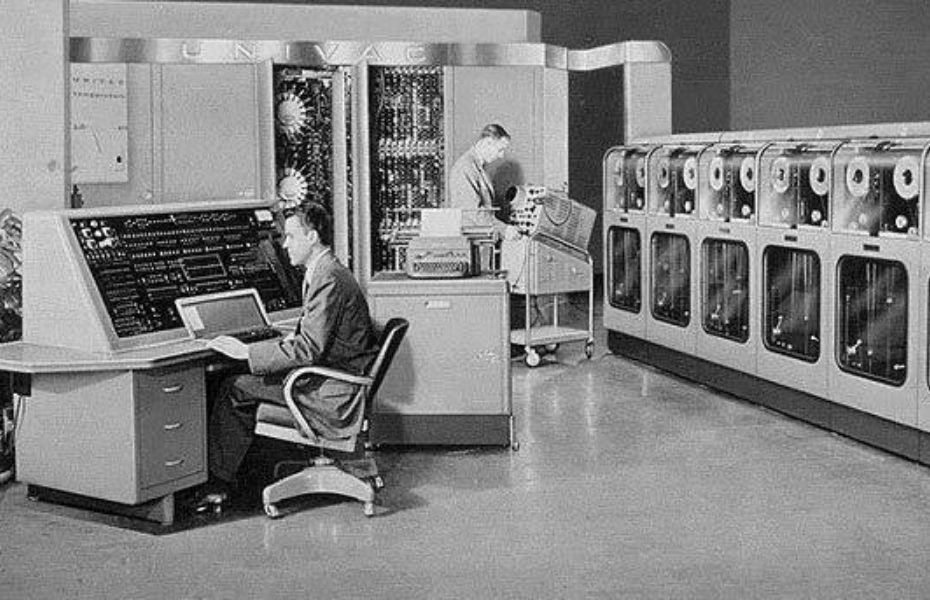
9 Characteristics of the First Generation Computer Bscholarly
Advantages of First Generation of Computer » Vacuum tubes were used as electronic component. » Electronic digital computers were developed for the first time. » These computers were the fastest calculating devices of their time. » Computations were performed in millisecond. Disadvantages of First Generation of Computer » Too large in size.

Generation of Computer 1st to 5th with Details » StudyMuch
First Generation: Vacuum Tube Computers (1940s - mid-1950s) Source: Computer History Museum. During the 1940s to the mid-1950s, a significant milestone in history unfolded with the emergence of the first generation of computers. These machines, fueled by vacuum tubes, announced the beginning of digital computing.

🌱 Features of first generation computer. 1st to 5th Generations of Computer Complete
Ihr Hardware-Spezialist für günstige gebrauchte Computer in BERLIN. Ihr Spezialist für günstige Hardware - Auf allen PCs Windows 10 vorinstalliert.

Features of fourth generation computer Computer generation, Computer history, Generation
Features of First Generation Computer. The first generation computers have the following characteristics: 1) Use of vacuum tube -: Vacuum tubes were used in the circuit of these computers. 2) Bulky size -: 1st generation computers were very large in size and heavy, so large rooms were required to keep them. 3) Use of punched card -: The work of input and output operation was done by punch card.

advantages and disadvantages of fifth generation computer Archives Solving Dad
The first generation of computers was developed at that period. Other computer generations have since been created by professionals. There are now five different computer generations.. Disadvantages of the First-Generation Computer. These computers weighed around 30 tonnes and were incredibly large, taking up a lot of room.
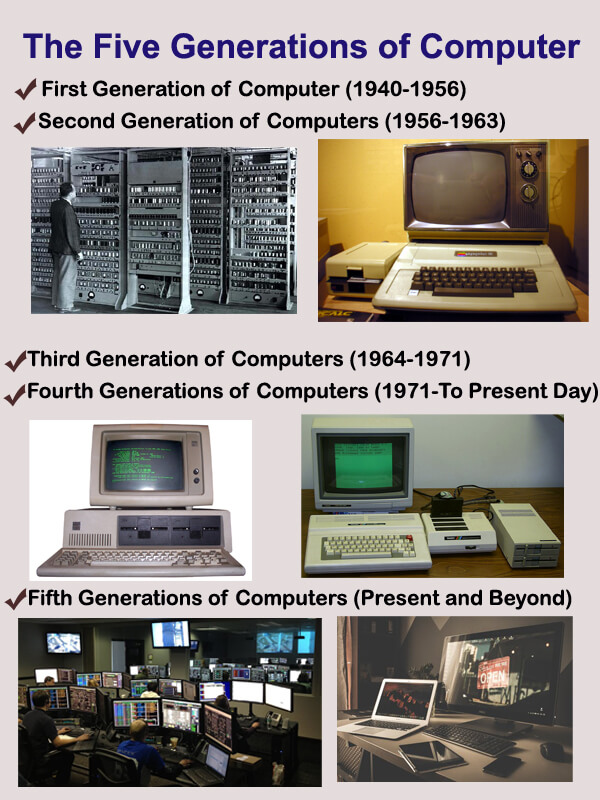
Disadvantages Of Fifth Generation Of Computer Third Generation Of Computer Advantage And
ENIAC, EDVAC, and. UNIVAC. Advantages of first generation computer: Listed below are advantages of first generation computer: (1) It was used mostly for scientific applications. (2) Only vacuum tubes were used in these generation computers. (3)These generations computers were simple architecture. (4) Facility for storing information.

First Generation of Computer from 1940 to 1956 Hardware and Software Technology using in first
The time period of the first generation of computers was 1946-1959. The first computer built with a vacuum tube in 1946 is called ENIAC. The Ferranti Mark-1 was created in 1951, and it is considered to be the first commercial vacuum tube computer.

Generations of Computer 1st to 5th Explained with Pictures. Computer generation, Computer
The CPU in first generation computers was made up of multiple vacuum tubes and performed arithmetic and logical operations. Memory. The first generation computers used a combination of two types of memory - Main Memory - This was constructed using a matrix of vacuum tubes and electromagnetic components. It was used for storing both data and.
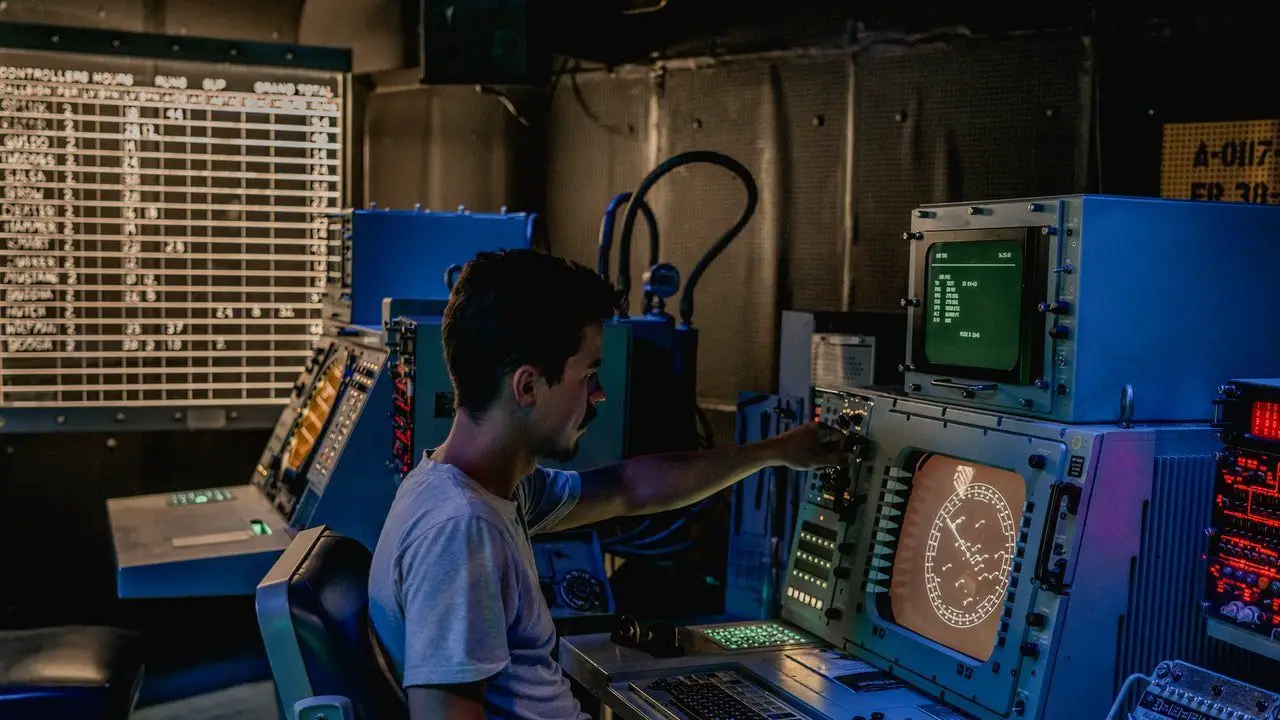
Advantages and disadvantages of first generation computers ExploringBits
The primary generation of computers had a lot of disadvantages than blessings. The foremost vital computers were ENIAC and UNIVAC-1. UNIVAC was the world's 1st commercially electronic computer. IBM 650 was the foremost widespread first-generation laptop. Here are the 1st generation pc list ENIAC, EDVAC, IBM-701, and IBM-650.
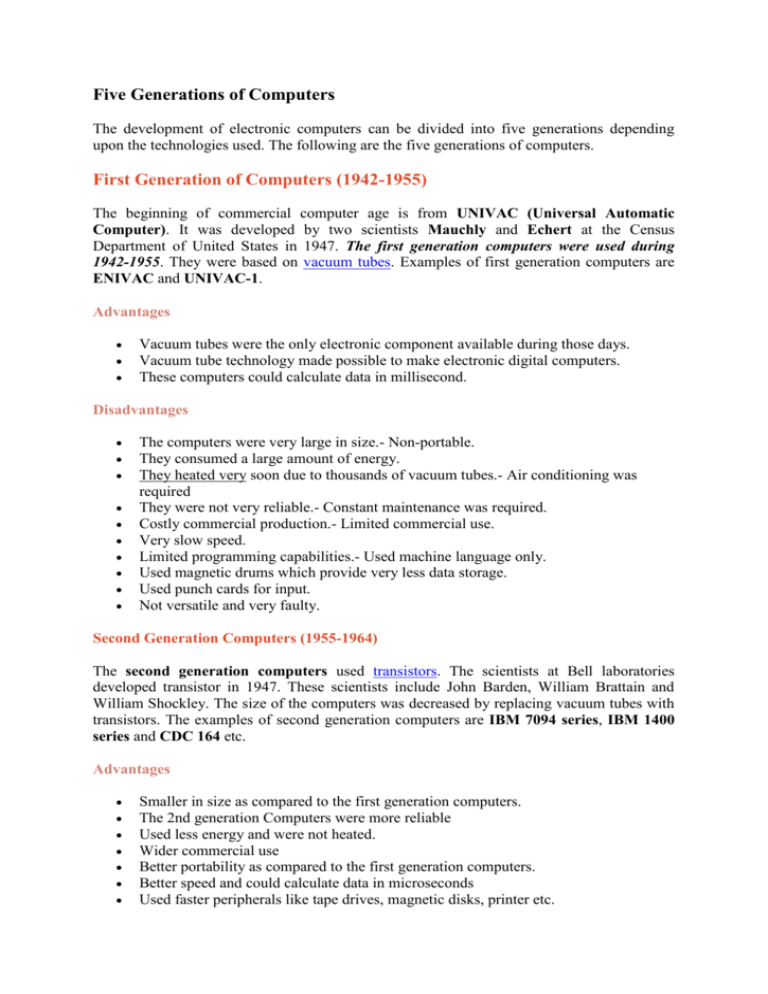
Advantages And Disadvantages Of Fifth Generation Of Computer Generation Of Computer History Of
Disadvantages. 1. First generations of computers used vacuum tubes in their hardware circuit. These systems used to produce more heat and power and hence they required air conditioners. 2. They used magnetic drums for memory. They are huge in size and expensive compared to other computers. 3.
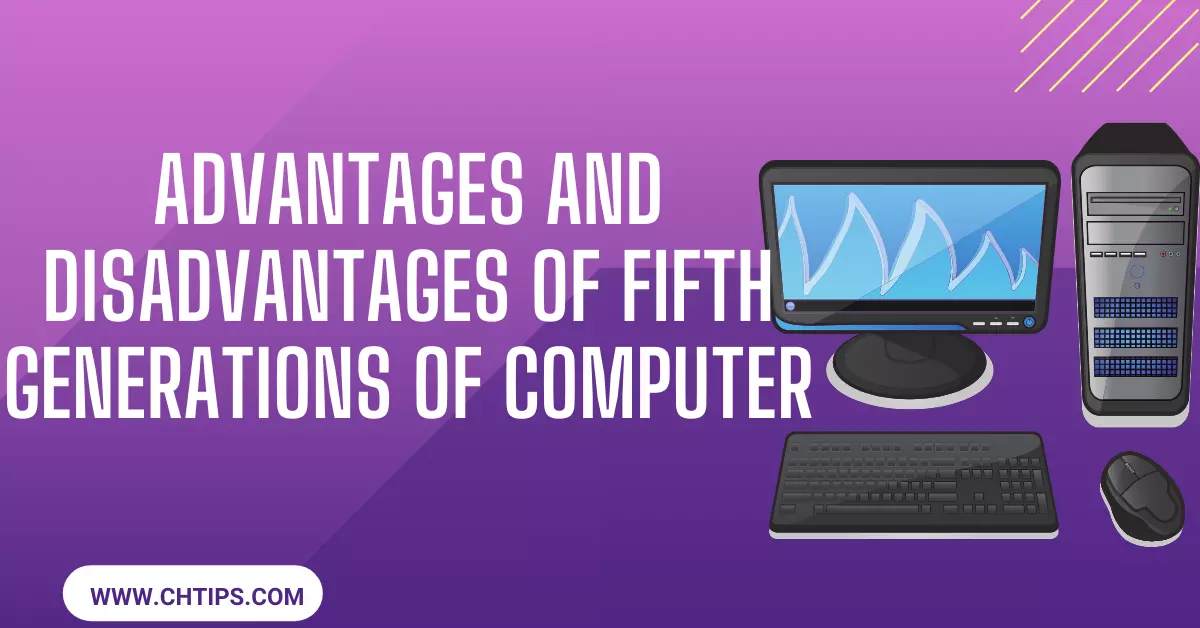
8 Advantages And Disadvantages Of Fifth Generations Of Computers
The computers of first-generation were managed to use in different fields like weather forecasting, solving mathematical problems, energy tasks, also in space research, military, and other scientific tasks.. In the first generation of computers, the first computer of the world named "ENIAC" (Electronic Numerical Integrator and Computer) was discovered by John Mauchly and J. Presper Eckert.

Advantages And Disadvantages Of Fifth Generation Of Computer Generation Of Computer History Of
Stöber in zahlreichen Angeboten für Elektronik & Multimedia und lass dich inspirieren. Große Auswahl an Elektronikartikeln auf Kaufland.de. Computer jetzt online kaufen
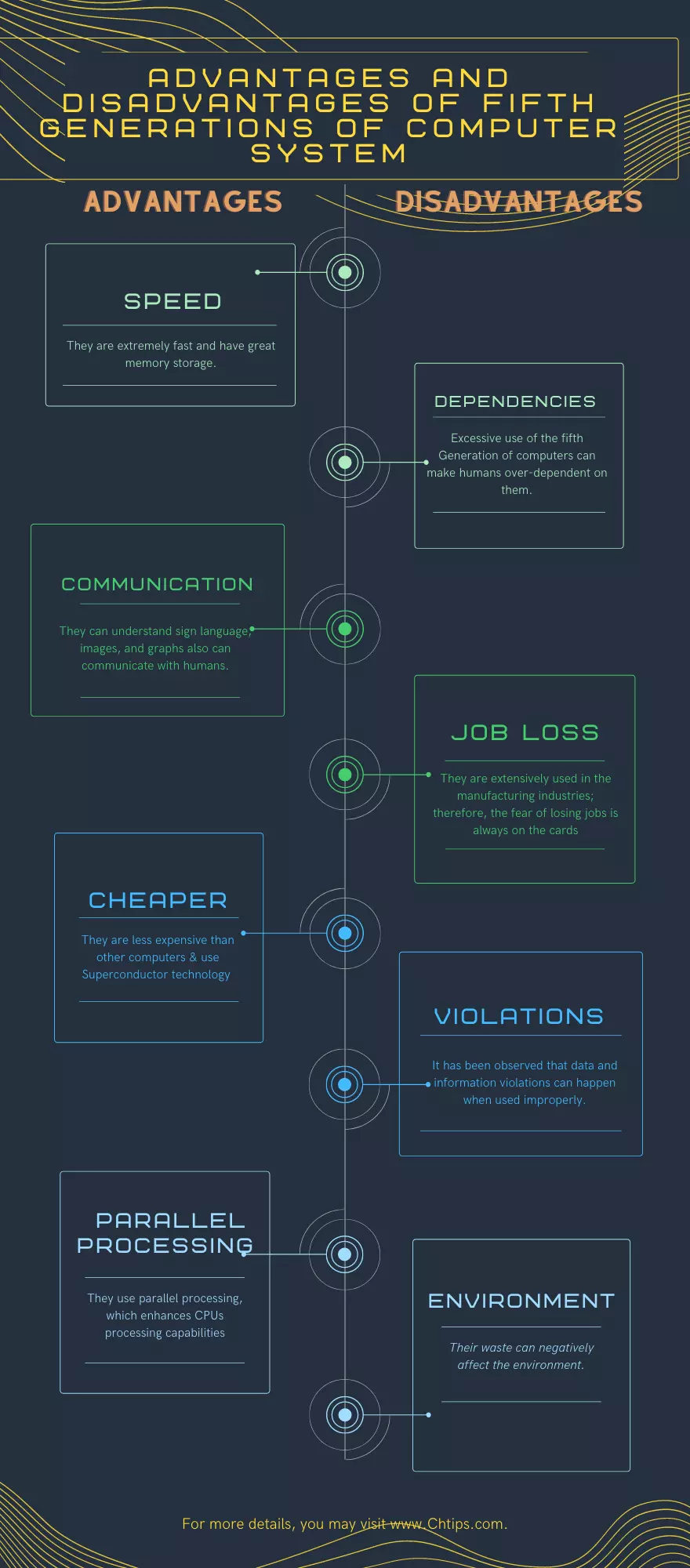
8 Advantages and Disadvantages of Fifth Generations of Computers
The main characteristics of first generation of computers (1940s-1950s) Power - consume a lot of electricity and generate a lot of heat. Speed and size - very slow and very large in size (often taking up entire room). Input/output devices - punched cards and paper tape.

Explain First Generation Of Computer First Generation Of Computer From 1940 To 1956 Hardware
Advantages of First Generation Computer. Pioneering technology - First generation computers were the first of their kind, ushering in a new era of technology and paving the way for future advancements.; Large-scale calculations - First generation computers were able to perform large-scale calculations and complex mathematical operations, which made them useful for scientific and military.
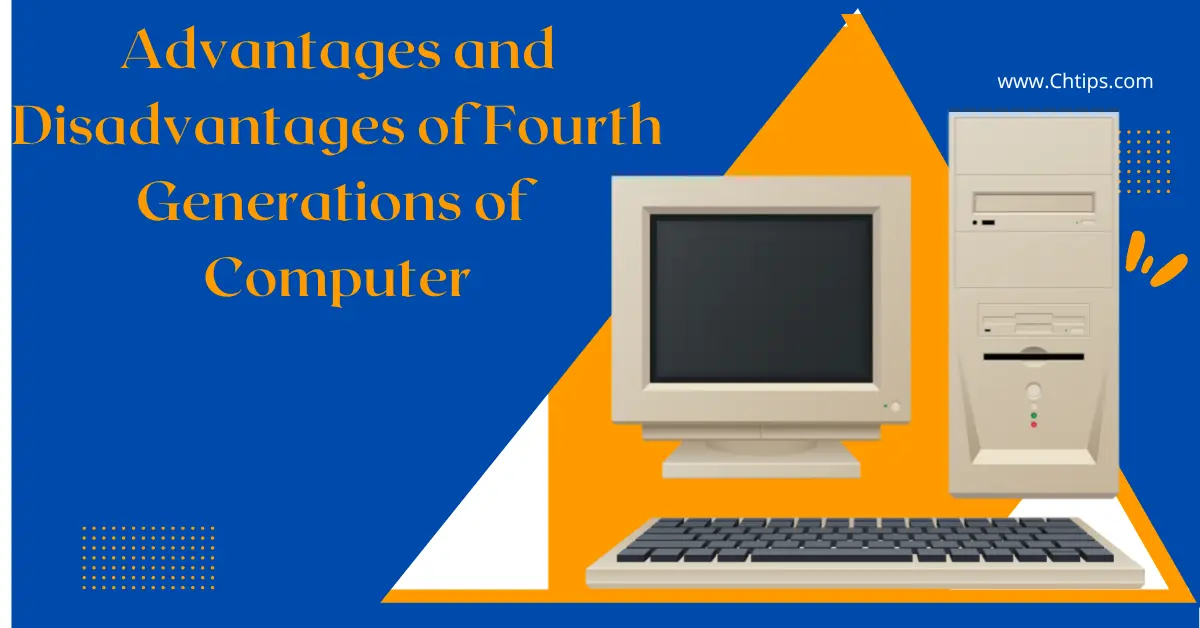
Top 13 Advantages and Disadvantages of Fourth Generations of Computer
A first generation (programming) language (1GL) is a grouping of programming languages that are machine level languages used to program first-generation computers. Originally, no translator was used to compile or assemble the first-generation language. The first-generation programming instructions were entered through the front panel switches.
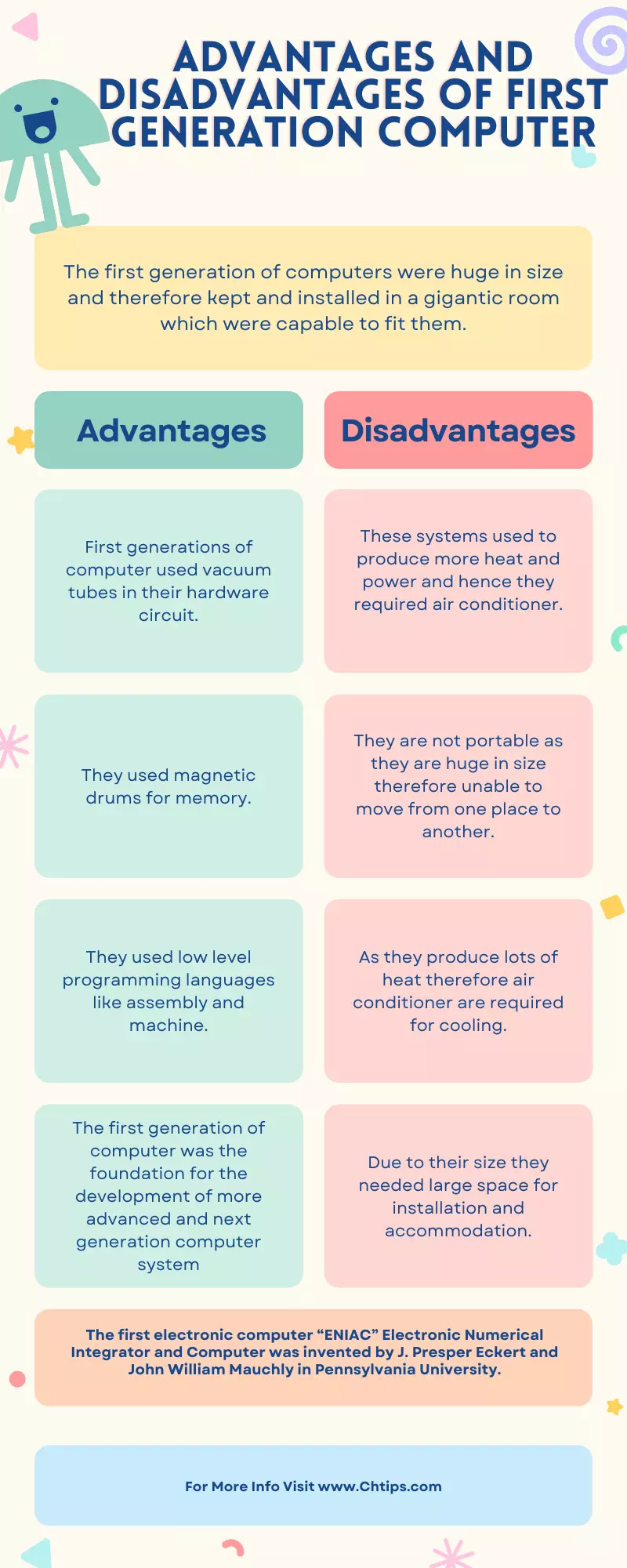
5+ Advantages and Disadvantages of First Generation Computer System
Every generation of computer devices changed the way we operate the computer and resulted in increasingly smaller, cheaper, and more powerful and efficient devices. The first generation of computers was entirely based on vacuum tubes which used to store the instructions. They used heavy magnetic drums for storing the memory.